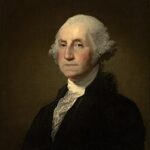President George Washington’s decision to deploy 13,000 federal troops against Pennsylvania farmers marked a defining moment in American history. The Washington Whiskey Rebellion crisis began when western farmers violently resisted the federal excise tax on whiskey. This tax burden fell heavily on rural distillers who converted grain into whiskey for easier transport and trade.
The Federal Response
Washington initially attempted diplomatic solutions through negotiation and proclamations. However, escalating violence against tax collectors forced decisive action. The president personally led the massive federal army westward in October 1794. ⚠️ This unprecedented show of federal force demonstrated the new government’s determination to enforce its laws. Critics immediately questioned whether such overwhelming military response was necessary or constitutional.
Constitutional Concerns
Opposition leaders argued that deploying federal troops against citizens violated republican principles. They claimed Washington’s actions resembled British tyranny that sparked the Revolution. 💰 The economic impact on western communities was severe and lasting. Many families faced financial ruin from military occupation costs.
Setting Dangerous Precedents
The Washington Whiskey Rebellion established executive authority to use military force domestically. This precedent would influence future presidents facing internal dissent. Constitutional scholars debated whether such power concentration threatened individual liberties and state sovereignty.
Impact:
The Washington Whiskey Rebellion’s suppression created lasting constitutional and political consequences that shaped American governance. The precedent established federal supremacy over state authority in taxation and law enforcement matters. This demonstration of federal power fundamentally altered the balance between central and local government.
Political Party Formation
🔥 The military response accelerated the formation of organized political opposition to Federalist policies. Democratic-Republicans rallied around Thomas Jefferson’s criticism of excessive federal authority. The incident deepened partisan divisions that would define early American politics for decades. Regional tensions between eastern commercial interests and western agricultural communities intensified significantly.
Constitutional Interpretation
Legal scholars continue debating the constitutional implications of Washington’s actions. The use of military force against citizens raised questions about civil liberties during domestic crises. Federal courts later referenced this precedent in cases involving executive emergency powers. The rebellion’s suppression influenced subsequent interpretations of the Constitution’s general welfare clause.
Long-term Executive Power
📊 Future presidents invoked the Whiskey Rebellion precedent to justify domestic military interventions. Lincoln referenced Washington’s actions during the Civil War to support federal authority. The precedent contributed to expanding executive power during national emergencies throughout American history.
Economic and Social Effects
Western Pennsylvania communities suffered long-term economic disruption from the military occupation. Many families migrated further west to escape federal taxation and oversight. The incident highlighted growing tensions between urban and rural America that persist today.
